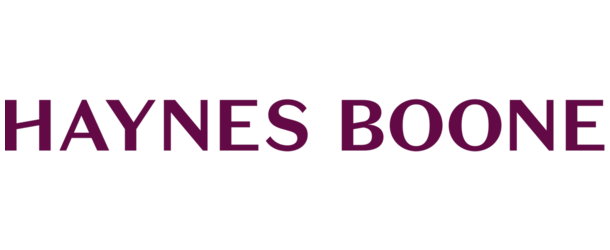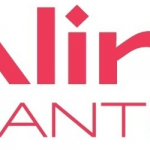Will National Security Concerns Obstruct Quantum Computer Finance? Part 2: Outbound Funds and Pending Legislation

Will National Security Concerns Obstruct Quantum Computer Finance?
Part 2: Outbound Funds and Pending Legislation
Whereas Part 1 focused on inbound investments, Part 2 takes a closer look at outbound funding considerations and pending legislation, that if passed, would further regulate the Quantum Computer industry.
Outbound Funds: Private Foreign Investment in Quantum
In recent months, the U.S. Congress is taking up legislation that would establish an outbound investment regulatory regime colloquially referred to as “reverse-CFIUS”. The purpose of this regime would be to regulate the countries and companies in which U.S. citizens and corporations may invest. While the exact contours of the restrictions will not be known until a law is enacted and implementing regulations are released, most sources suggest that the covered sectors will include quantum computing, artificial intelligence, 5G, and advanced semiconductors.[1]
A new outbound investment regime such as the one proposed and currently working its way through the Senate will greatly affect U.S. persons’ ability to invest in certain foreign entities, especially those based or operating in China. While reverse CFIUS is likely to be less restrictive than inbound investment controls, U.S. quantum companies hoping to become multinational may nevertheless be affected by the regulations, for example by limiting international expansion options. The quantum industry should keep track of the legislation, and, if it is enacted, of any proposed regulations, as submitting thoughtful comments could help mitigate unwanted impacts from the law.
General Quantum Regulation – Pending U.S. Legislation
Several pieces of proposed legislation provide some indication of the direction in which the U.S. is headed in its regulation of quantum computing. First, and potentially the most impactful if passed, is the Fair Trade with China Enforcement Act, which is currently referred to the Committee on Finance in the U.S. Senate.[2] Generally, the bill proposes a number of restrictions and controls on exports to China and restrictions on both investment in China by U.S. nationals and Chinese nationals in the U.S. Specific to quantum, the bill proposes adding quantum computing products to a list of products receiving support from the Chinese government.[3] Addition to this list will mean that quantum computing products will be subject to at least (1) a prohibition on exporting to China any national security sensitive technology or intellectual property,[4] (2) a shareholder cap on Chinese investors in U.S. companies in the quantum industry,[5] and (3) a countervailing duty on Chinese produced quantum products.[6]
Another bill pending that would have a major impact on the quantum industry if passed is the Restricting the Emergence of Security Threats that Risk Information and Communications Technology Act (or the “RESTRICT Act”), which is currently referred to the Committee on Commerce, Science, and Transportation.[7] Regarding quantum, the RESTRICT Act would make information and communication technology products and services integral to (1) quantum key distribution, (2) quantum communications, (3) quantum computing, and (4) post-quantum cryptography, “areas of priority” for evaluation under certain provisions of the bill.[8] Those provisions would authorize and require the Secretary of Commerce to “take action to identify, deter, disrupt, prevent, prohibit, investigate, or otherwise mitigate any risk arising from any covered transaction by any person, or with respect to any property, subject to the jurisdiction of the United States that the Secretary determines . . . poses an undue or unacceptable risk of” certain enumerated issues.[9] Further, the bill would allow the President to compel divestiture of or take other risk mitigation measures associated with investments in quantum technologies that are deemed to pose such an undue or unacceptable risk.[10]
While these bills are still in committee and there is no certainty that they will pass in their current form, or even pass at all, they do give insight into the direction in which U.S. quantum regulations are heading. The pending legislation is generally more aggressive and restrictive than anything now in place and could create seismic changes in the industry if passed. As such, it is advisable that quantum computing companies in the United States keep apprised of these bills and others that may be working their way through the U.S. Congress.
Takeaway:
- The rules and regulations impacting financing the Quantum Computing industry are in a constant state of flux and are likely to get stricter in the coming years.
Peyton Meyer is an associate in the Intellectual Property Practice Group who focuses her practice in preparing and prosecuting patent applications. She is experienced in innovations in mechanical and medical technology. Tanner Luttrull is an associate in the Intellectual Property Practice Group in Haynes Boone’s Dallas office, his practice focuses on preparing and prosecuting U.S., Patent Cooperation Treaty (PCT) and foreign utility patent applications. Edward Lebow is counsel in Haynes Boone’s Washington, D.C., office. With over 30 years of experience representing clients in international trade cases, Edward obtains relief for U.S. industries injured by dumped or subsidized imports and successfully defends foreign companies against such actions. He is especially adept in advising clients on how to comply with U.S. trade laws and avoid costly legal proceedings.
[1] Jake A. Laband et al., Parameters of New US Outbound Investment Regime Begin to Emerge, WilmerHale (February 21, 2023), https://www.wilmerhale.com/insights/client-alerts/20230221-parameters-of-new-us-outbound-investment-regime-begin-to-emerge.
[2] S. 153, 118th Cong. (as referred to S. Comm. on Fin., Jan. 30, 2023).
[3] Id. at § 101(a).
[4] Id. at § 102.
[5] Id. at § 103.
[6] Id. at § 201.
[7] S. 686, 118th Cong. (as referred to S. Comm. on Com., Sci., and Transp., Mar. 7, 2023).
[8] Id. at § 5(a)(7).
[9] Id. at § 3(a).
[10] Id. at § 4(c).
By Peyton Meyer, Tanner Luttrull and Ed Lebow
Click here to read Part One: Will National Security Concerns Obstruct Quantum Computer Finance?





















